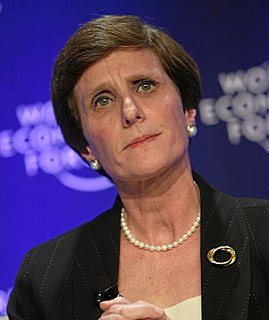A Quote by Yvon Chouinard
I took a dozen of our top managers to Argentina, to the windswept mountains of the real Patagonia, for a walkabout. In the course of roaming around those wild lands, we asked ourselves why we were in business and what kind of business we wanted Patagonia to be. A billion-dollar company? Okay, but not if it meant we had to make products we couldn't be proud of. And we discussed what we could do to help stem the environmental harm we caused as a company. We talked about the values we had in common, and the shared culture that had brought everyone to Patagonia, Inc., and not another company.
Quote Topics
About
Another
Argentina
Around
Asked
Be Proud
Billion
Brought
Business
Caused
Common
Company
Could
Course
Culture
Discussed
Dollar
Dozen
Environmental
Everyone
Had
Harm
Help
Kind
Lands
Make
Managers
Meant
Mountains
Okay
Our
Ourselves
Patagonia
Products
Proud
Real
Roaming
Roaming Around
Shared
Stem
Talked
Those
Took
Top
Values
Wanted
Were
Why
Wild
Related Quotes
What they don't realize is that I'm not in the business to make clothes. I'm not in the business to make more money for myself, for Christ's sake. This is the reason Patagonia exists - to put into action the recommendations I read about in books to avoid environmental collapse. That's the reason I'm in business - to try to clean up our own act, and try to influence other companies to do the right thing, and try to influence our customers to do the right thing. So we're not going to change.
Apple Computer would not have reached its current peak of success if it had feared to roll the dice and launch products that didn't always hit the mark. In the mid-1990s, the company was considered washed up. Steve Jobs had departed, and a string of lackluster product launches unrelated to the company's core business had failed to catch fire.
Apple Computer would not have reached its current peak of success if it had feared to roll the dice and launch products that didn't always hit the mark. In the mid-1990s, the company was considered washed up, Steve Jobs had departed, and a string of lackluster product launches unrelated to the company's core business.
I never wanted to be a businessman; I was a craftsman and good at working with my hands. At some point, I decided that this company is my best resource. Patagonia now exists to put into practice all the things that smart people are saying we have to do not only to save the planet but to save the economy.
The only choice that leads small business owners to real success in their endeavors is the one that requires real thought. Understanding and building the systems they need within their company to afford them a framework of organization that can scale the business from a company of one to a company of one thousand.
I've interviewed people where their response was literally one word for everything I asked. This didn't help me get to know them, nor did it sell me on their skill set to help my company achieve its goals. I got nothing from them, which meant I had no way of knowing if they were really a good fit in the company.
What's fascinating . . .is that you could now have a business that might have been selling for $10 billion where the business itself could probably not have borrowed even $100 million. But the owners of that business, because its public, could borrow many billions of dollars on their little pieces of paper- because they had these market valuations. But as a private business, the company itself couldn't borrow even 1/20th of what the individuals could borrow.































